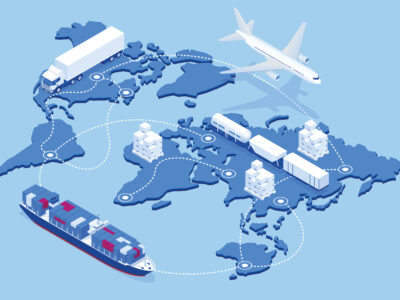A lot has been written about Microsoft and Nokia in the past few days – some of it good, most of it bad. We at Techwench have taken a long look at the Nokia-Microsoft Alliance and we thought we’d pitch in with our own two cents.
History was re-written on February 11, 2011 when Nokia announced that it was entering a strategic alliance with Microsoft. Note the choice of words – “strategic alliance”. The choice of words is important here, as we will soon see. With that announcement, Nokia also said that Symbian will soon die a slow, natural death and that Meego has been relegated to “experiment” status, a euphemism for “don’t expect any awesome Meego devices from us”. On a side-note, it has been learned that Intel, Nokia’s partner in the Meego project, was just as taken aback by this sudden announcement as the rest of the world. Not the best way to build trust among partners, is it? Windows Phone 7 will be Nokia’s primary strategy. Is this a Win-Win situation? Or a Lose-Lose Situation?
Microsoft Eliminates Biggest Competitor
“If you can’t beat ‘em, join ‘em,” someone once said. Microsoft did one better – it made “them” join Microsoft! Before the era of iOS and Android, Symbian and Windows Mobile were at loggerheads with each other. It was no secret that whatever Microsoft tried, it just wasn’t able to beat Symbian. We said Symbian, not Nokia. Back in those days, Symbian wasn’t a Nokia-exclusive. Sony Ericsson, Motorola, LG and most other manufacturers all used Symbian.
By the time Windows Phone 7 came out, it had two new competitors. The biggest, however, was still Symbian. With this move, Microsoft has killed the competition in a day. There will be no Symbian with its once-humongous market share to beat. Microsoft has even killed off a potential future competitor – Meego. At the same time, the biggest phone manufacturer in the world will now push their OS. Whether this is a good decision for Nokia remains to be seen, but Microsoft has already won.
What about Ecosystem?
“The game has changed from a battle of devices, to a war of ecosystems.”
Those were Stephen Elop’s exact words – it’s a war of ecosystems. But of course it is! And it’s not something that Stephen Elop just realized. Nokia realized the importance of having an ecosystem long back. That’s why it came out with its own application market much before Apple did. That’s why it was the first company to provide free maps. It wasn’t just about the device, it was what it enabled people to do.
And if it is a war of ecosystems, isn’t it better to own your own ecosystem? Samsung realizes this – it created Bada. HP realizes this – it bought Palm. HTC realizes this – it also tried to buy Palm. Google realizes this – it created an OS and two phones running that OS. So while the biggest companies focus on creating their own ecosystem, Nokia jumps onto Microsoft’s ship.
The Ovi brand is effectively dead. Ovi Maps will simply provide technology to Bing Maps. Ovi Store will make way for Microsoft Marketplace. Anything else that says “Ovi” will also be replaced by Microsoft branded technology. So Nokia will no longer make the same amount of money that it did from selling apps on Ovi Store, or by displaying ads using its own technologies (Bing adCenter will be used for ads as well). So Nokia says that it is a war of ecosystems, and kills off its own ecosystem.
Nokia: More than an OEM
If there’s one positive aspect to this whole partnership for Nokia, it is that it is not just another OEM. Remember the words they used? “Strategic Alliance”. While companies like HTC, SE, etc will still make WP7 phones, Nokia is the only one so far that has been given permission to make changes to the UI. Nokia is more than an OEM. It is going to play an active role in the future direction of WP7. Of course, with Microsoft’s history of bad partnerships (HTC, Motorola, LG have all been disillusioned by Microsoft), the amount of say Nokia will have is suspect. But it is still a sweeter deal than what other companies have.
What about the other details like Xbox Live and Office? Those are there too, but they will not make any major difference. People’s response to Xbox Live integration has been lukewarm at best. And QuickOffice already provides sufficient Office functionality for most people.
Closing Words
With stock prices having dropped 14% in the day following the announcement, it is clear that investors are not too happy with the announcement. Nokia had invested millions of dollars and, more importantly, years of time in Symbian and Meego development. In just once announcement, they effectively said that the promises they had been making for years were all false and all the money they had invested would go to waste. Developers that had been learning Qt were let down as well, since Microsoft will provide its own, non-Qt, tools for WP7 development. People who had just bought Symbian Phones like the N8 with hopes of long term support are disappointed. People who were going to buy the E7 that has just been released are now having second, and third, thoughts.
Nokia does have something to gain. “We are thinking about the long term” had become Nokia’s usual answer. They have spent so much time thinking about the long term that Symbian^3 was delayed multiple times, as were its updates. So much time, in fact, that even after nearly four years after the launch of the iPhone, Nokia still doesn’t have a device to match it in terms of user experience. This is where Microsoft is going to help Nokia. While Nokia still has the best hardware, using software from Microsoft means that it will no longer fall behind the other players in terms of OS.
It is possible that Nokia will see a fall in profits this year, as many Symbian-buyers-to-be change their decisions. However, increase in profits in the coming years is probable. Symbian enthusiasts and Meego lovers will rue Nokia’s decisions. Nokia will lose out on having its own OS and ecosystem. But Nokia is ready to forgo all this at the cost of making headway in the US market and re-capturing lost market share and mind share. We will soon see how good a decision this has been.












Comments